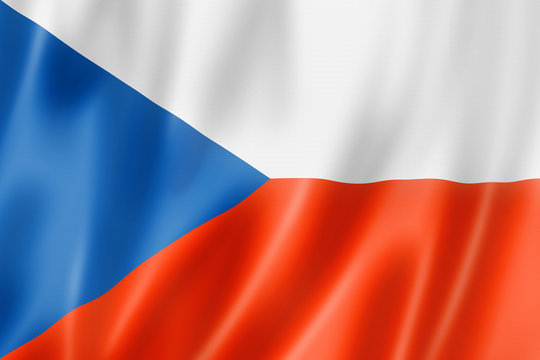The Republic of Bulgaria is a small country located in Southeast Europe and bordering on Greece and Turkey, Serbia, North Macedonia, and Romania. Its history is complex because it was the centre of its empire in the past, yet it has also been under the Ottoman and Soviet reign. As Bulgaria has already become a member of the European Union (EU), it has transformed into a high-income country with the per capita GDP amounting to 16,940 dollars this year. The country has been experiencing a high growth rate of its economy since the 1990s, and it is estimated to grow at 2.7 percent in 2024 to reach a high level of 101.61 million. As this expansion goes on, Bulgaria needs more labour to continue powering its economy. If you are thinking of investing in Bulgaria. It is a good opportunity to venture into this market.

Business opportunities in Bulgaria
There are numerous business opportunities in Bulgaria which can lure investors and business people due to its strategic location, availability of low-cost labour and its effort to enhance its business environment all the time.
Through its membership in the European Union, Bulgaria has access to a massive single market, and it also receives funding towards various projects from the EU. Most potentially promising investment spheres are:
IT and outsourcing
Bulgaria has the potential to create software and business process outsourcing and IT services because of its highly qualified and low-cost IT labour force and technical system of education.
Manufacturing
The cheap labour prices and favourable location, combined with access to the EU markets, provide the manufacturing sectors in Bulgaria with opportunities, particularly the automotive, electronics and machinery sectors.
Tourism and hospitality
Varied landscapes and rich cultural heritage, and low prices create a possibility of investing in the hotel and resort industry as well as tourism services in Bulgaria, particularly on the Black Sea coast and in ski resorts in the mountains.
Agriculture and food processing
Bulgaria has a favourable climate, a long agricultural tradition and fertile land, which creates investment opportunities in the sphere of modern farming methods, organic production and food processing.
Renewable energy
With Bulgaria looking to expand its renewable energy sources portfolio, solar, wind and hydropower projects are opening up to investments, with the government providing incentives and EU funds.
The economy of Bulgaria has been expanding every year in spite of regional and global difficulties. Wages are low and the economy is good; this combination makes Bulgaria an interesting destination to establish a business, in case you are seeking to make an entrance in Europe.
General information about Bulgaria and its Economy
Energy, mining and metallurgy, iron and steel, glass, machinery, telecommunications, agriculture and tourism are the drivers of the economy. Bulgaria imports refined fuel, machinery, clothing, and steel products, as well as its renowned yoghurt in the world.
Bulgarian wages are low, despite the fact that the economy has been growing over the past decades. The average monthly wage in 2023 was only 2,072 leva (roughly 1,146 USD) and the lowest in the EU.
As of 1 January 2024, the minimum monthly salary in the country is just 933 BGN (approximately 515 USD). This should make it obvious that the country has managed to create a rather powerful economy, but labour is still quite inexpensive here.
In January-May 2024, foreign direct investment in Bulgaria amounted to 591.3 million EUR, which is significantly lower than in previous years. This was invested mostly by Belgium, Austria and the Netherlands. Greater net outflows were registered with Bulgarian firms investing in Russia and Germany.
The economy of Bulgaria is that of a growing economy, which has recovered effectively following the global pandemic and the reduction in foreign direct investment into the country because of the instability in the region. The unemployment rate is low and stable, and workers are in high demand in most sectors.
Bulgarian business regulation
Just like in any other foreign nation, initiating a business in Bulgaria may not be an easy task. Nevertheless, the regulatory environment in Bulgaria is rather average when compared with most of its neighbours in Europe and Asia. The protections to workers are many, and also to safeguard and encourage the development of business.
Considering the business in Bulgaria, these are some of the most essential points of legal regulation you should know:
Registration and compliance
In order to establish any form of business in Bulgaria, one has to apply to the Registry Agency under the Ministry of Justice. The applications should be drawn in Bulgarian or another EU language, accompanied by an official Bulgarian translation.
Possible entities are limited liability companies, joint stock companies, general partnerships, limited partnerships, partnerships limited by shares or branches of foreign enterprises. After being registered in the commercial register, an entity has to register in the National Revenue Agency, where it is assigned a value-added tax (VAT) number.
The entities also require premises and bank accounts in Bulgaria. Every company has to make annual financial statements comprising their balance sheet, profit & loss account and notes, and these are supposed to be published in the Commercial Register.
Advantages of investing in Bulgaria
Provided that you are interested in doing business in Bulgaria, you had better know what the advantages and disadvantages are. The advantages of the establishment in Bulgaria are:
- Low corporate tax rate at 10 percent and a low rate of tax on dividends at 5 percent.
- A stable, long-term growth of the economy over several decades.
- The availability of the EU common market and other neighbours in the region and the Black Sea.
- Minimal wages and one of the cheapest workers in the EU.
- Talented, well-motivated and highly flexible employees.
- The capacity to purchase land and own property in the country.
You can also view these posts;
Cost of living in Serbia
Preparing for the immigration interview in Croatia
Preparing for the immigration interview in Sweden

